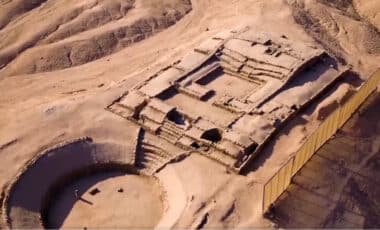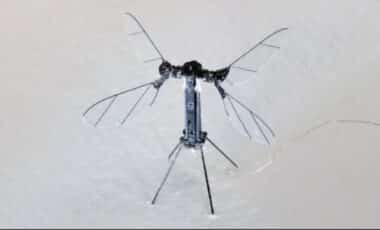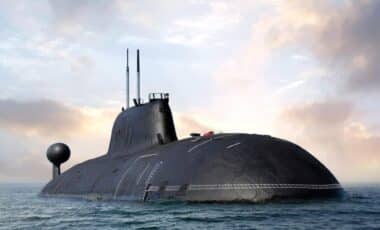What does a compensator do on a pistol? A compensator redirects propellant gases to counter recoil and unwanted muzzle rise. This makes the shooting experience much more comfortable and controlled. In this post, we take a closer look at what compensators are and how they work. We also discuss the different types available on the market today. So, if you are interested in learning more about compensators, keep reading!
A compensator is a nice addition to any pistol, but what is it, and how does it work? Most people have an idea of what a barrel compensator is. You commonly see them on rifles like the AR-15 and AK-47. But what if you’re using a pistol or handgun? Pistols don’t have barrels, right? Well, that depends on how you define barrel! A barrel compensator will actually work on pistols.
What Does A Compensator Do On A Pistol – Its Uses
So, what is a compensator and what does it do on a pistol? Pistol compensators are pistol accessories that let you compensate for muzzle rise when firing. A compensator attaches to the barrel of a pistol and reduces recoil and muzzle rise, making it easier to control the weapon and improve accuracy.
There are several different types of compensators, and each one has its unique benefits. The compensator allows the propellant gas produced from firing to exit at different angles, thereby minimizing muzzle rise while shooting.
Many people use pistol compensators as aesthetic accessories, too. They change up your gun’s look and help you stand out from other shooters, which can add to your enjoyment of shooting.
What Does A Compensator Do On A Pistol – Advantages
 (source)
(source)
Unlike barrel fluting, which can reduce a pistol’s accuracy and shorten its lifespan, a compensator can improve your accuracy while also extending your gun’s lifespan.
Compensators help counteract a pistol’s kickback when fired by venting gas upward from ports or holes in an enclosed cylinder. Marksmen frequently use pistol compensators for competitive shooting, but you can also use them for self-defense if you find yourself aiming at a moving target in close quarters. For example, many police departments recommend officers use compensated pistols whenever possible because it makes them more accurate when firing at close range as it eliminates muzzle climb.
What Does A Compensator Do On A Pistol – Disadvantages
Pistols are naturally less accurate than rifles, but with the addition of a compensator, these deficiencies are compounded. The disadvantage of using a pistol compensator is that the muzzle blast causes your sight alignment to be thrown off significantly. Pistols also have greater recoil when using a compensator, which reduces control over the gun.
If you’re planning to use a pistol as your primary weapon for self-defense, you may want to avoid using a compensator for both accuracy and control reasons.
Things to Consider When Buying a Pistol Compensator
If you’re buying a pistol compensator, there are a few things to consider. You must know what caliber you want your compensator for. Check out your local laws about owning a pistol compensator before purchasing one, and take some time to find out what makes each of these different brands unique to find one that works best for you.
Different Types of Pistol Compensators
There are many different types of pistol compensators, and manufacturers have developed different styles for different guns. Therefore, there are literally thousands of different pistol compensators available for sale today. The basic design can be boiled down to three categories: single-chamber, double-chamber, and muzzle brake compensators.
So what’s better? Different shooters like different things!
Single-Chamber Compensators

A single-chamber compensator reduces muzzle or barrel rise for more accurate follow-up shots. Compensators redirect some of a bullet’s energy to counteract a gun’s natural tendency to rise when fired. A compensator doesn’t reduce recoil-it just helps stabilize a gun so you can get back on target faster.
Examples of single-chamber compensators include most devices that screw onto a rifle or shotgun barrel, such as flash hiders, muzzle brakes, and recoil reducers.
Double-Chamber Compensators
A double-chamber compensator uses two internal baffles to direct gas out of one side of a barrel, depending on what angle it exits. A single-chamber compensator sends all of its gasses out of just one side. That’s right! This type of compensator can help you control muzzle rise by sending gasses upward through two chambers to stabilize your weapon during firing. If you’re looking for examples of how double chambers work, check out this video:
Muzzle Brakes Compensator
A muzzle brake compensator, or just muzzle brake, is an attachment to some types of firearms used to control recoil. It works by countering muzzle rise. In essence, they fit onto guns at what’s called the muzzle, which takes all of your escaping gas, smoke, and anything else going into your barrel that you want to shoot out with your bullet into one place so that you can get more stability from shooting upwards. If you have any spike coming out of your gun, like a cannonball or whatever, you can do something with that energy and help stabilize your weapon even more.
What Does A Compensator Do On A Pistol – Conclusion
A compensator results in reduced recoil and can also assist in increasing accuracy and precision. This device is becoming more popular among shooters, as it can help them shoot with greater accuracy and comes in handy for competitive shooting. If you are looking for a way to improve your shooting skills, consider adding a compensator to your firearm.








